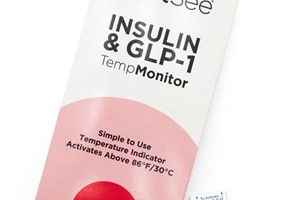In a significant breakthrough, researchers at the Keck School of Medicine, University of Southern California (USC), have identified a protein, Piezo1, as a potential target for alleviating allergic asthma symptoms. Their findings, set to be published in the Journal of Experimental Medicine (JEM), shed light on a novel mechanism that could pave the way for innovative therapeutic interventions in the treatment of allergic asthma.
Allergic asthma, a chronic respiratory condition affecting millions worldwide, is characterized by airway inflammation triggered by exposure to allergens. Among the various immune cells involved in this process, Type 2 innate lymphoid cells (ILC2s) play a pivotal role. Upon encountering allergens, ILC2s become hyperactivated, producing proinflammatory signals that exacerbate lung inflammation, ultimately leading to breathing difficulties in asthma patients.
Lead investigator Omid Akbari, Professor of Immunology and Professor of Medicine at USC's Keck School of Medicine, and his team delved into understanding the regulatory mechanisms governing ILC2 activity. Their research unveiled a crucial role for the Piezo1 protein in modulating ILC2 response to allergenic stimuli.
Piezo1, known for its involvement in sensing mechanical changes in cellular environments, acts as a regulator of ILC2 activity. Upon allergen exposure, ILC2s initiate Piezo1 production, which in turn limits their hyperactivation. This intricate regulatory mechanism serves to mitigate excessive inflammation in the lungs.
Through meticulously designed experiments utilizing mouse models, Akbari's team demonstrated that the absence of Piezo1 resulted in heightened ILC2 activity and exacerbated airway inflammation in response to allergens. Conversely, activation of Piezo1 channels with a drug called Yoda1 effectively dampened ILC2 activity, leading to a reduction in airway inflammation and alleviation of asthma symptoms in mice.
Furthermore, the researchers validated their findings in human ILC2s, confirming the presence of Piezo1 and its potential as a therapeutic target. By replacing mouse ILC2s with human immune cells in experimental models, they observed that Yoda1 treatment successfully attenuated airway hyperreactivity and lung inflammation, suggesting translational potential in human asthma patients.
Professor Akbari underscores the significance of these findings, emphasizing the urgent need for novel therapeutic approaches to address the underlying drivers of allergic asthma. The identification of Piezo1 as a key regulator of ILC2 function opens new avenues for targeted interventions aimed at modulating airway inflammation and improving respiratory outcomes in asthma patients.
As the research progresses, future studies will focus on elucidating the role of Piezo1 channels in human asthma pathogenesis, with the ultimate goal of developing Piezo1-driven therapeutics tailored to the specific needs of allergic asthma patients.
Rockefeller Univeristy Press













